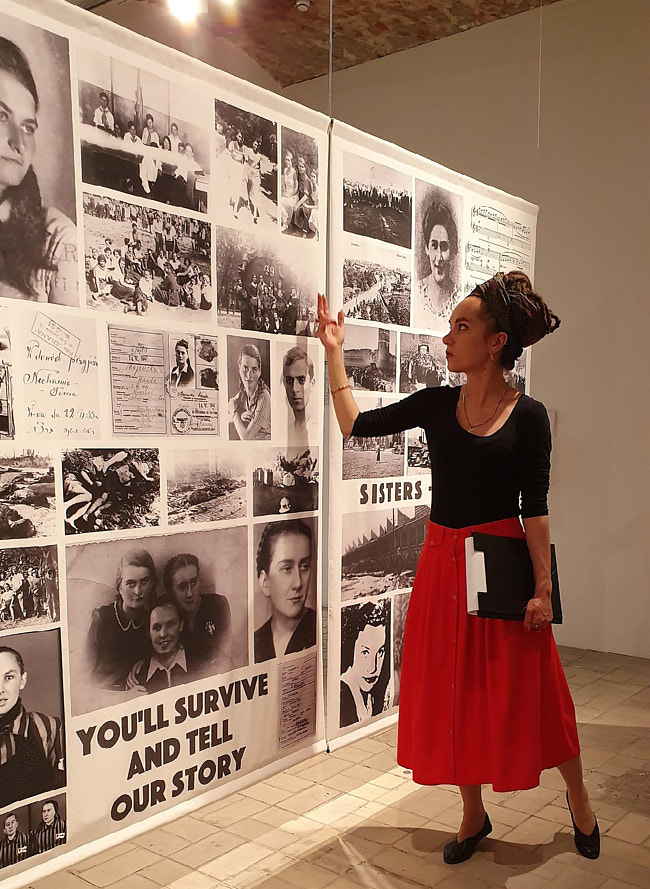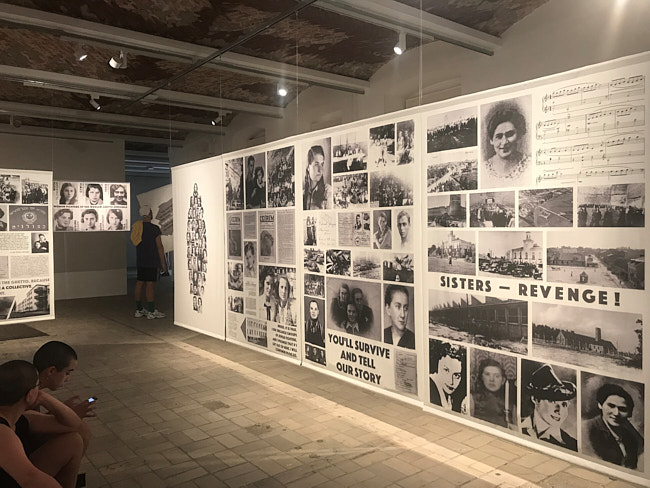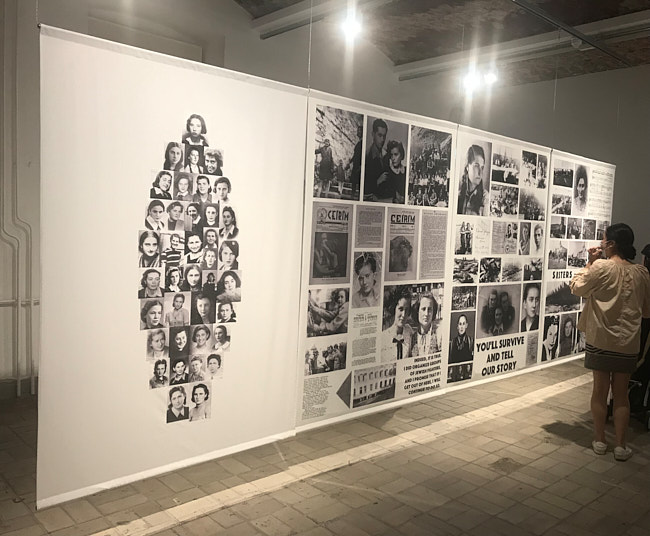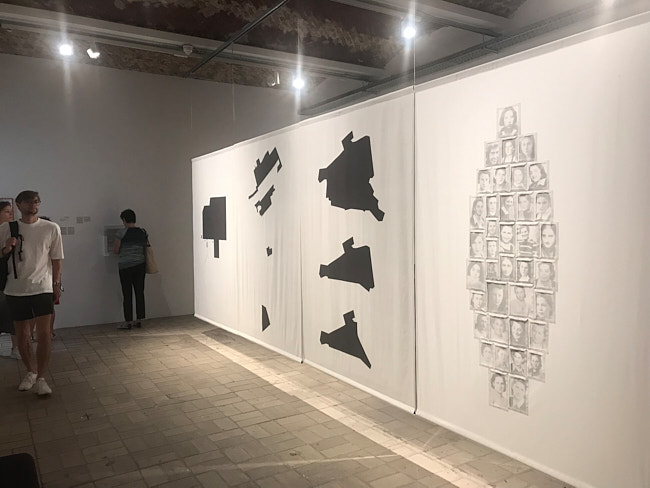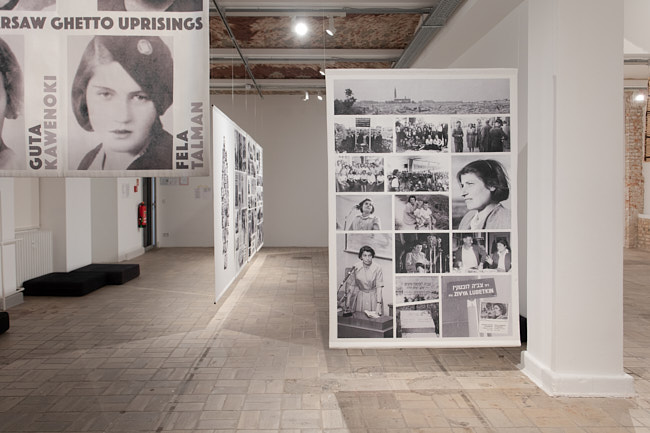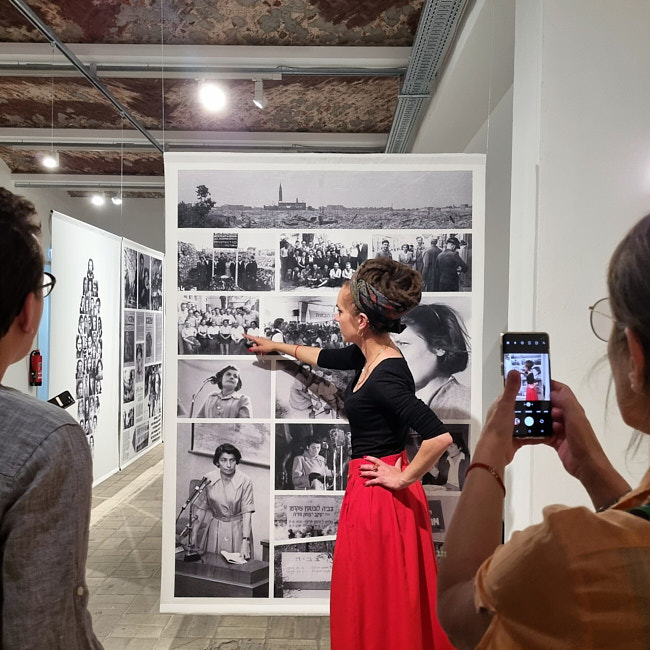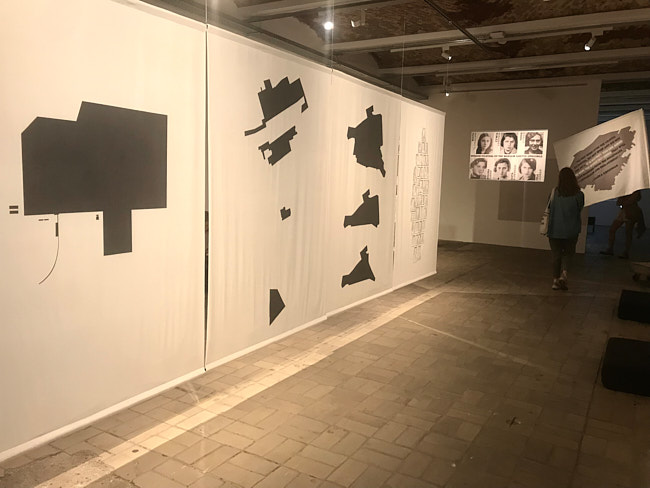Mechitza. Individual and Collective Resistance of Women during the Shoah- 12th Berlin Biennale for Contemporary Art
2019 – 2022, 12th Berlin Biennale for Contemporary Art, KW Institute for Contemporary Art, 11.6.–18.9.2022 (curator Kader Attia)
Z. Hertzberg, Mechitza. Individual and Collective Resistance of Women during the Shoah, 2019 – 2022, textile installation view and photo documentation of spoken word performance, 12th Berlin Biennale, KW Institute for Contemporary Art, 2022. Photo: Przyjaciele MSN
Z. Hertzberg, Mechitza. Individual and Collective Resistance of Women during the Shoah, 2019 – 2022, textile installation view and spoken word performance,12th Berlin Biennale for Contemporary Art, KW Institute for Contemporary Art, 2022. Photo: Z. Hertzberg
Z. Hertzberg, Mechitza. Individual and Collective Resistance of Women during the Shoah, 2019 – 2022, textile installation view and spoken word performance,12th Berlin Biennale for Contemporary Art, KW Institute for Contemporary Art, 2022. Photo: Z. Hertzberg
Z. Hertzberg, Mechitza. Individual and Collective Resistance of Women during the Shoah, 2019 – 2022, textile installation view and spoken word performance,12th Berlin Biennale for Contemporary Art, KW Institute for Contemporary Art, 2022. Photo: Z. Hertzberg
Z. Hertzberg, Mechitza. Individual and Collective Resistance of Women during the Shoah, 2019 – 2022, textile installation view and spoken word performance,12th Berlin Biennale for Contemporary Art, KW Institute for Contemporary Art, 2022. Photo: S. Briel
Z. Hertzberg, Mechitza. Individual and Collective Resistance of Women during the Shoah, 2019 – 2022, textile installation view and photo documentation of spoken word performance, 12th Berlin Biennale, KW Institute for Contemporary Art, 2022. Photo: Przyjaciele MSN
Z. Hertzberg, Mechitza. Individual and Collective Resistance of Women during the Shoah, 2019 – 2022, textile installation view and spoken word performance,12th Berlin Biennale for Contemporary Art, KW Institute for Contemporary Art, 2022. Photo: Z. Hertzberg
As I write these words, the war in Ukraine is unfolding, exposing the masculine and gendered nature of this conflict and many others. One aspect of Zuzanna Hertzberg’s practice is to recover the herstories of Jewish activism since the early twentieth century. For a decade, the artist has meticulously constructed an affective archive of women Jewish resistance fighters. Hertzberg’s thorough research is based on her own Polish-Jewish identity; her intersectional anarchafeminist political engagement; her interest in performance, artivism, omitted narratives and minority perspectives; and her concern with the flaws and blind spots of collective memory. She has compiled a collection of herstories of those who resisted but have not been remembered.
For the 12th Berlin Biennale, she presents the heroines of ghettos and Nazi concentration and extermination camps in Poland, Ukraine, Belarus, and Lithuania—women that she introduced to the historical narrative in Poland, whose strategies could still be used today. We see their ID cards and articles they wrote, along with their young faces on photographs from collective meetings. The documentation is printed on large-format textiles that vaguely re- semble banners, flags, or curtains. This is a reference to a mechitza, a partition between women and men in orthodox synagogues, and to the many lines of partition that run through families, systems of education, politics, or the constructions of shared histories. The textile backs feature printed maps of the sites of these women’s resistance. In her installations and self-initiated commemorative ceremonies in public space, often staged in former synagogues or deportation sites, Hertzberg pleas for more radical empathy and equality in the past, present, and future for all peoples regardless of how they identify themselves.
Joanna Warsza

